Uncategorized
Elevate Your Career in Aviation Maintenance with Aircraft Maintainer
IF YOU CAN PUT A JET IN THE SKY, WHY CAN’T YOUR FUTURE TAKE FLIGHT
Whether you stumbled upon our website while searching for information on aircraft maintenance certifications like the FCC GROL or NCATT AET, or were just browsing for information about resume building after your separation from the military – you’re in the right place.
Aircraft Maintainer is your one-stop shop for the best aviation-related certifications. We understand that navigating the various certification options available can be mind-numbing. So, we’re here to help you make sense of it all.
What kind of person we’re looking for
Are you a current maintainer looking to advance your career? A veteran transitioning to civilian life? Perhaps you’re someone just starting out in the aviation industry? Either way, we want to help you achieve your goals.
One of the most important aspects of working in aviation maintenance is staying current with the latest technologies, techniques, and regulations. That’s why certifications are so important. By obtaining certifications like the FCC GROL, NCATT AET, and FCC GMDSS, you’ll demonstrate to employers that you have the knowledge and skills needed to perform your job at a high level.
ADDITIONAL BENEFITS
But it’s not just about impressing potential employers. Pursuing certifications can also lead to higher pay, better job security, and greater opportunities for advancement. Whether you’re looking to switch careers, take on more challenging projects, or simply earn a promotion, these certifications can get you there.
At Aircraft Maintainer, we’re committed to helping you navigate the certification process and find the options that are right for you. Our founder, a fellow maintainer, created the company because he saw a need for a simpler, more accessible way to obtain licenses and certifications.
Aircraft Maintainer Certifications
FCC General Radio Operator License (GROL)
The Federal Communications Commission (FCC) General Radiotelephone Operator License (GROL) is a popular certification for those working in aviation, maritime, and international fixed public radio services. With an FCC GROL, you’ll be authorized to adjust, maintain, or internally repair FCC licensed radiotelephone transmitters.
This certification is required by many industries if you work as an aviation and marine electronics technician, captain of a small ship, or a technician repairing and maintaining aircraft, ship, or land-based radio equipment or marine RADARs. To obtain an FCC GROL, you’ll need to pass a written exam that covers radio regulations, operating practices, and electronics fundamentals.
Here are ten jobs someone with an FCC GROL might pursue:
-
- Avionics Technician: They install, maintain, and repair radio and navigation equipment in aircraft.
- Marine Electronics Technician: They install and repair communications equipment and navigation systems on ships and boats.
- Radio Frequency (RF) Engineer: They design and analyze radio frequency systems and equipment for various industries, including broadcasting and telecommunications.
- Broadcast Engineer: They maintain, and repair broadcasting equipment and transmission systems used in radio and television stations.
- Satellite Communications Technician: They install, maintain, and repair satellite communication systems used in broadcasting, aviation, and military operations.
- Wireless Network Engineer: They design, install, and maintain wireless communication networks for various industries, including telecommunications and transportation.
- Radio Frequency Identification (RFID) Technician: They install and maintain RFID systems that are used in tracking inventory and assets in retail, healthcare, and other industries.
- Two-Way Radio Technician: They install and maintain two-way radio systems used in public safety, transportation, and other industries.
- Radar Technician: They install and maintain radar systems used in aviation, military, and weather forecasting applications.
- Communications Tower Technician: They install, maintain, and repair communication towers and antenna systems used in broadcasting, telecommunications, and public safety applications.
NCATT Aircraft Electronics Technician (AET)
The National Center for Aerospace and Transportation Technologies (NCATT) Aircraft Electronics Technician (AET) certification is ideal for those interested in working as an Aviation Electronic Technician. This certification demonstrates that you have the specialized knowledge and training necessary to inspect, repair, and maintain the electrical systems in aircraft.
AETs must understand the workings of warfare sensors, flight controls, signal jamming, and other aircraft mechanisms. This role also entails some unpredictability since projects vary in terms of complexity. AETs may work in the military (this might be you already), which requires extensive travel and training, or pursue employment with airlines, repair stations, or manufacturers.
To obtain an NCATT AET certification, you’ll need to pass a written exam that covers basic electronics and aviation maintenance concepts.
Here are ten jobs that someone with an NCATT AET might pursue:
-
- Avionics Technician: They install, maintain, and repair avionics systems in aircraft, including navigation, communication, and flight control systems.
- Aircraft Electrician: They install, maintain, and repair electrical systems in aircraft, including wiring, lighting, and power systems.
- Flight Test Technician: They install and maintain avionics and other systems used in flight test operations, and may also conduct flight tests to evaluate performance and safety.
- Aerospace Engineer: They design and develop avionics systems and other aircraft components using advanced computer modeling and simulation tools.
- Aircraft Maintenance Technician: They conduct routine maintenance, inspections, and repairs on aircraft systems, including avionics, electrical, and mechanical systems.
- Aerospace Quality Control Inspector: They inspect aircraft components and systems to ensure compliance with industry standards and regulations.
- Avionics Test Technician: They design and conduct tests to evaluate the performance of avionics systems and components.
- Aircraft Systems Engineer: They design, integrate, and test avionics systems and other aircraft components to ensure safety and reliability.
- Technical Writer: They create technical manuals, procedures, and other documentation related to aircraft electronics and avionics systems.
- Aerospace Technical Sales Representative: They promote and sell avionics systems and components to customers in the aerospace industry.
FCC Global Maritime Distress and Safety System (GMDSS)
The FCC Global Maritime Distress and Safety System (GMDSS) Radio Operator’s License is an internationally recognized certification for those interested in working aboard ships. The GMDSS is an automated ship-to-shore system using satellites and digital selective calling technology.
The FCC requires two licensed radio operators to be aboard all GMDSS certified ships, one of whom must be available to act as a dedicated radio operator during a distress situation. The GMDSS radio operator is an individual licensed to handle radio communications aboard ships in compliance with the GMDSS regulations, including basic equipment and antenna adjustments.
This certification is ideal for those interested in working in the maritime industry or pursuing a career as a radio operator aboard ships. To obtain an FCC GMDSS, you’ll need to pass a written exam that covers radio regulations, operating practices, and electronics fundamentals.
Here are ten jobs a person with an FCC GMDSS might pursue:
-
- GMDSS Radio Operator: They operate and maintain radio communication equipment aboard vessels, including distress and safety equipment used in emergency situations.
- Maritime Communications Officer: They manage and coordinate communications between vessels and shore-based stations, including maintaining contact with vessels in distress.
- Marine Electronics Technician: They install and repair communication and navigation equipment on ships and boats, including GMDSS systems.
- Marine Surveyor: They inspect vessels to ensure compliance with safety and environmental regulations, including inspecting communication and navigation equipment.
- Vessel Traffic Service Operator: They manage vessel traffic in busy ports and waterways, including coordinating communications between vessels and monitoring GMDSS distress signals.
- Marine Operations Manager: They oversee the operation of vessels, including managing communications and ensuring compliance with safety and environmental regulations.
- Marine Electronics Sales Representative: They sell communication and navigation equipment to customers in the marine industry, including GMDSS systems.
- Marine Operations Coordinator: They coordinate vessel movements and logistics, including managing communication between vessels and shore-based stations.
- Marine Security Officer: They ensure the safety and security of vessels and their crews, including monitoring GMDSS distress signals and responding to emergencies.
- Offshore Installation Manager: They manage offshore installations, including communication and safety equipment, and ensure compliance with safety and environmental regulations.
What these certs all have in common
While each of these certifications has its own unique requirements and benefits, they all have one thing in common: they can help you advance your career and increase your earning potential. By demonstrating your knowledge and expertise in a particular area, you’ll be more attractive to potential employers and have access to more job opportunities.
However, it’s important to note that obtaining a certification is not a guarantee of employment or success. You’ll still need to put in the time and effort to hone your skills and market yourself effectively. Additionally, some certifications may require ongoing training and recertification to maintain your credentials.
Why Aircraft Maintainer, llc?
One of the greatest benefits of working with Aircraft Maintainer is that we partner with AFCOOL to help active-duty Airmen obtain these certifications for free. If you qualify, you’ll pay zero dollars for something that will increase your earning potential and career opportunities.
So, whether you’re a seasoned maintainer, or just starting out in the industry, we invite you to explore our certification options and see how Aircraft Maintainer can help you reach your full potential.
Like this post and want to read more? Check out the rest of our BLOG.

